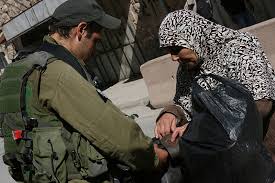
On the first day of the Gaza war, Philip Gordon, the Obama administration's "Coordinator for the Middle East," lectured the Israelis on why they should make more concessions to the Palestinians, including apparently taking down security checkpoints in the territories.
On the third day of the Gaza war, the Palestinians reminded everyone why those security checkpoints should be remained--and even expanded.
Gordon began with the usual rhetoric about how "both sides" have not made the necessary decisions for peace, how both sides have engaged in "mutual dehumanization," and how "both sides" need to use restraint. In doing so, he underscored the inability of the Obama administration to distinguish between aggressor and victim, between a corrupt pro-terror regime and a reliable democratic ally--in other words, between right and wrong.
For this administration, Israel is not America's only real ally in the Middle East; both Israel and the Palestinian Authority are America's allies. Gordon's praise of the PA's supposed "courage and reliability" made the administration's perspective all too clear.
Then he proceeded to berate Israel about how "walls and missile defense systems" will not give it true protection. "True safety for Israel," he insisted, will only come when there is an independent Palestinian state camped out along Israel's nine-miles-wide borders.
Using carefully-chosen language, Gordon also went out of his way to demand that Israel ensure not only "sovereignty and freedom," but also "dignity" for the Palestinians. He brought up the "dignity" issue not once, not twice, but three separate times in his speech. Speeches such as Gordon are carefully written by the State Department's Mideast team and vetted by the department's top officials. Every word is deliberate and has meaning.
As the State Department knows full well, the Palestinian Authority and its supporters routinely use the word "dignity" in connection with a specific political demand: that Israel remove the security checkpoint that it operates in various parts of the Judea-Samaria (West Bank) territories. Philip Gordon's thrice-stated demand for "dignity" seems to be a thinly-disguised call for Israel to remove the checkpoints.
Just like the security checkpoints at every American airport, the purpose of the Israeli checkpoints is to deter and catch terrorists. Travelers do not enjoy the inconvenience of having to remove their shoes or submit to a body search, but to call such security measures "undignified" or "humiliating" is absurd.
The absurdity of Gordon's "dignity" demand on the first day of the war became painfully clear by the third day of the war. That's when Israeli border guards at the Oranim checkpoint, on Highway 5 near the Arab city of Qalqilya, noticed something suspicious about a particular automobile. The driver was then subjected to the supposedly "undignified" and "humiliating" process of having his car carefully examined. That's when the guards discovered a hidden coking gas tank, connected to explosives. The driver confessed that he was on his way to carry out a terrorist attack. Had he reached his target with a weapon of that caliber, the consequences would have been catastrophic.
Most of the current attacks against Israel are being launched from Gaza, but Palestinian terrorists in Judea-Samaria are trying to do their share, too. In any war, the bare minimum a country needs to do is to carefully screen foreigners who try to cross its borders.
If Philip Gordon and the Obama administration had their way, the Oranim checkpoint would no longer exist, the Palestinians would have their "dignity," while Israel would be burying the dead from the gas tank attack.
Second lesson from the Gaza war: Keep the security checkpoints and expand them if necessary, whether the State department likes it or not.
[The authors are members of the board of the Religious Zionists of America.]






